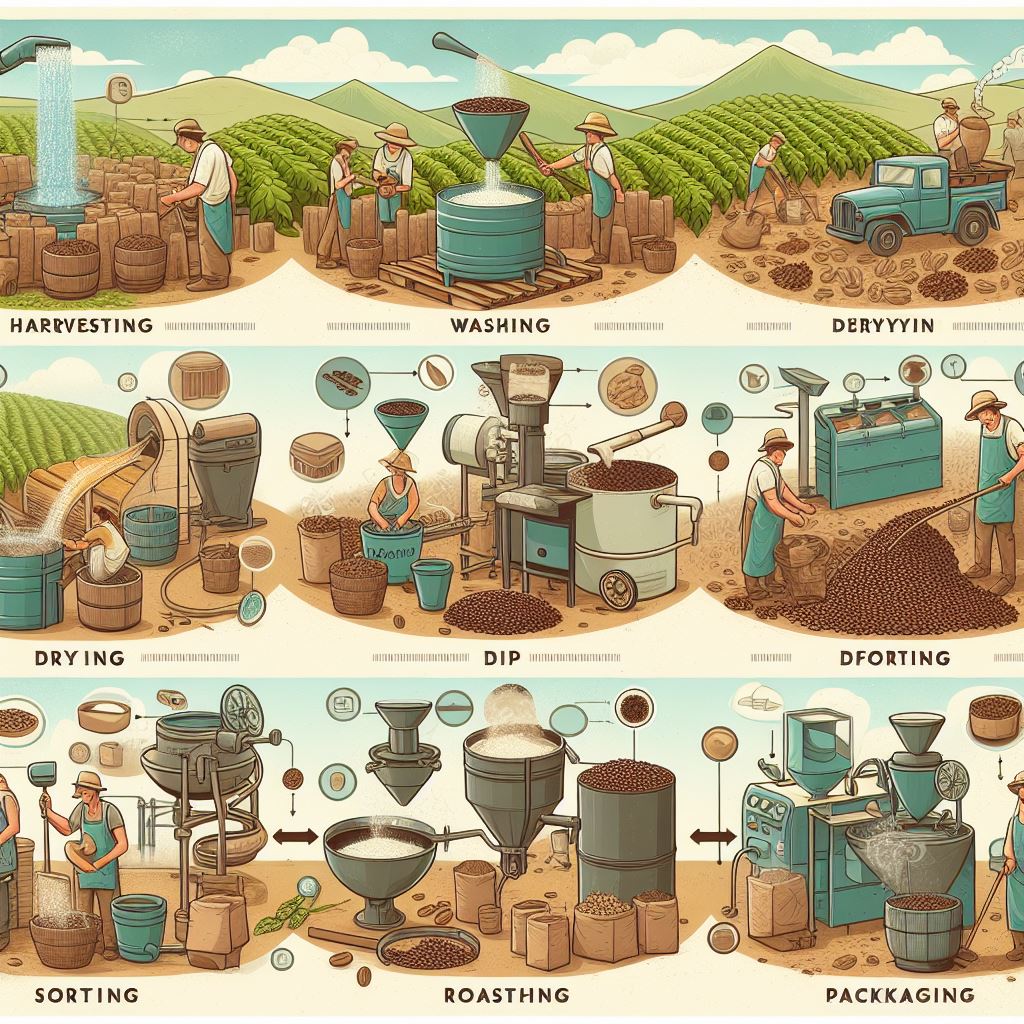
Coffee Processing and its affect on flavour
Hey, coffee lovers! Do you know what makes coffee so delicious? It's not just the way you brew it, but also the way the coffee beans are processed before they reach your cup. Coffee processing is the method of removing the fruit from the coffee seeds, and it can have a huge impact on the flavour and aroma of your coffee. Let me tell you more about the two main types of coffee processing: washed and natural.
Washed coffee is the most common type of processing, and it involves removing all the fruit from the beans as soon as possible after harvesting. The beans are then soaked in water or scraped by a machine to get rid of the sticky layer called mucilage. After that, the beans are washed again and dried by the sun or a machine. Washed coffee tends to have a clean, sweet and acidic taste that reflects the true characteristics of the coffee variety and origin.
Natural coffee is the oldest type of processing, and it involves leaving the fruit on the beans until they are dry. The beans can be dried on the tree or on a patio after picking. The fruit shrivels up and forms a protective layer around the beans. Natural coffee tends to have a fruity, complex taste that is influenced by the fermentation of the fruit.
There are also other types of coffee processing that are variations of washed and natural, such as honey, anaerobic, or wet-hulled. Each one has its own advantages and disadvantages, and can create different flavours in your coffee. So next time you hear a roaster talking about washed and natural, you'll know what they mean and how it affects your coffee experience.
Want to try a natural processed coffee? Then try a bag of our Exotic Naturally processed Colombian coffee "Felipe Arcila".

